It’s a question that divides marketers and keeps PPC managers up at night: should you spend hard-earned budget bidding on your own brand?
At first glance, it might seem like a no-brainer. If someone’s searching for your brand, they already know you exist. Surely they’ll find you organically, right? But in the ever-competitive world of search, the decision isn’t quite so black and white.
Let’s dive into the nitty-gritty of branded PPC, uncover the pros and cons, and help you decide whether you should be splashing the cash on your own name.
Why Bid on Your Own Brand?
Here’s the deal: bidding on branded terms can actually do a lot more than just fill Google’s pockets. When done strategically, it can amplify your digital presence.
1. Keep Competitors in Check
It’s ruthless out there. Competitors can (and will) bid on your brand name to poach your potential customers. If their ad shows up above your organic result, they might nab the click—and potentially the sale.
By bidding on your own brand, you take control and ensure your ad sits proudly above theirs, keeping your customers where they belong: with you. Some industries are worse than others, but you can see here that when specifically searching for an Admiral product, they aren’t appearing in the top 3 places, which means that their only visible result is 4th place via their organic ranking). Obviously you hope users will get to you, but I don’t know many marketing strategies that rely on hope.
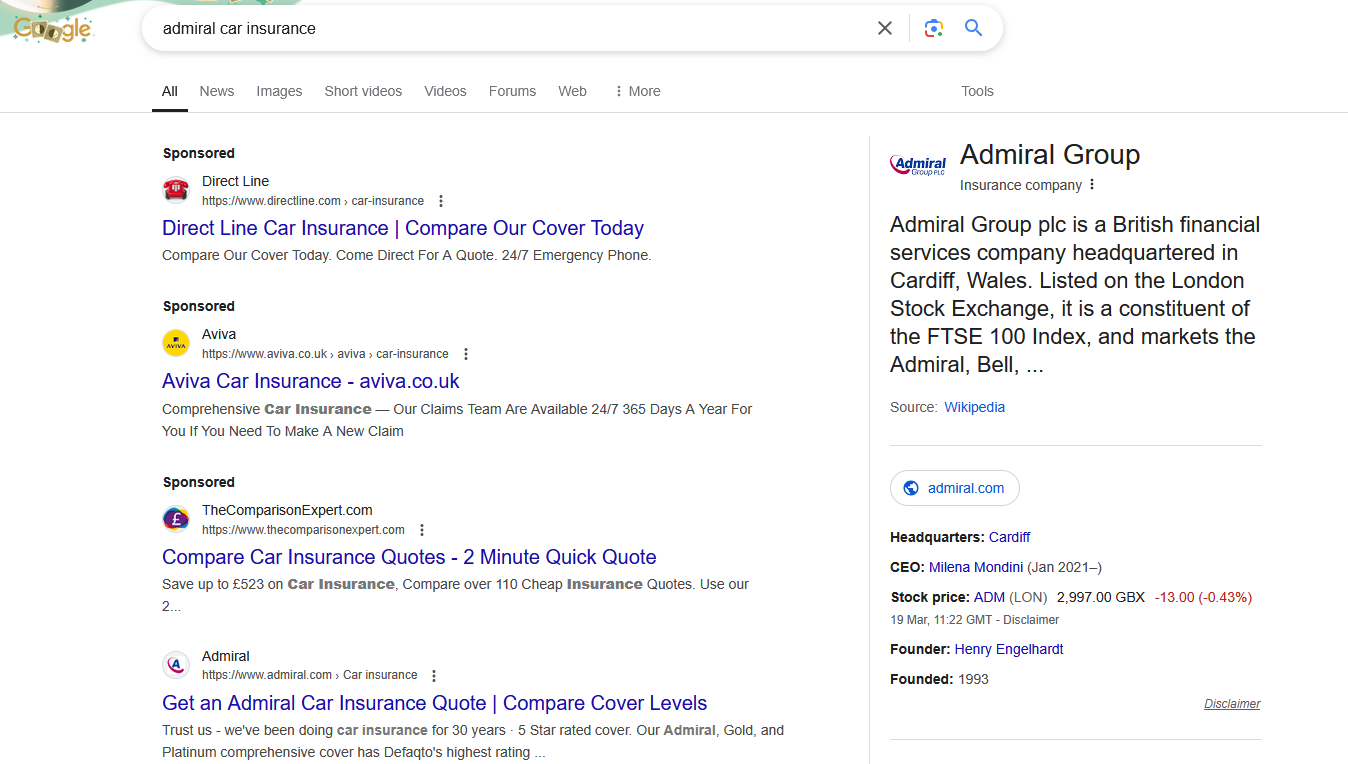
2. Own the Narrative
Organic listings are great, but they’re not always flexible. With a paid ad, you can tailor your messaging to highlight key promotions, direct users to a specific page, or shout about your 5-star reviews. This is particularly important around holidays/sales seasons like Black Friday or Cyber Monday. If you are running a mix of offers to attract business, you can change offers daily rather than being limited by changing meta titles and descriptions.
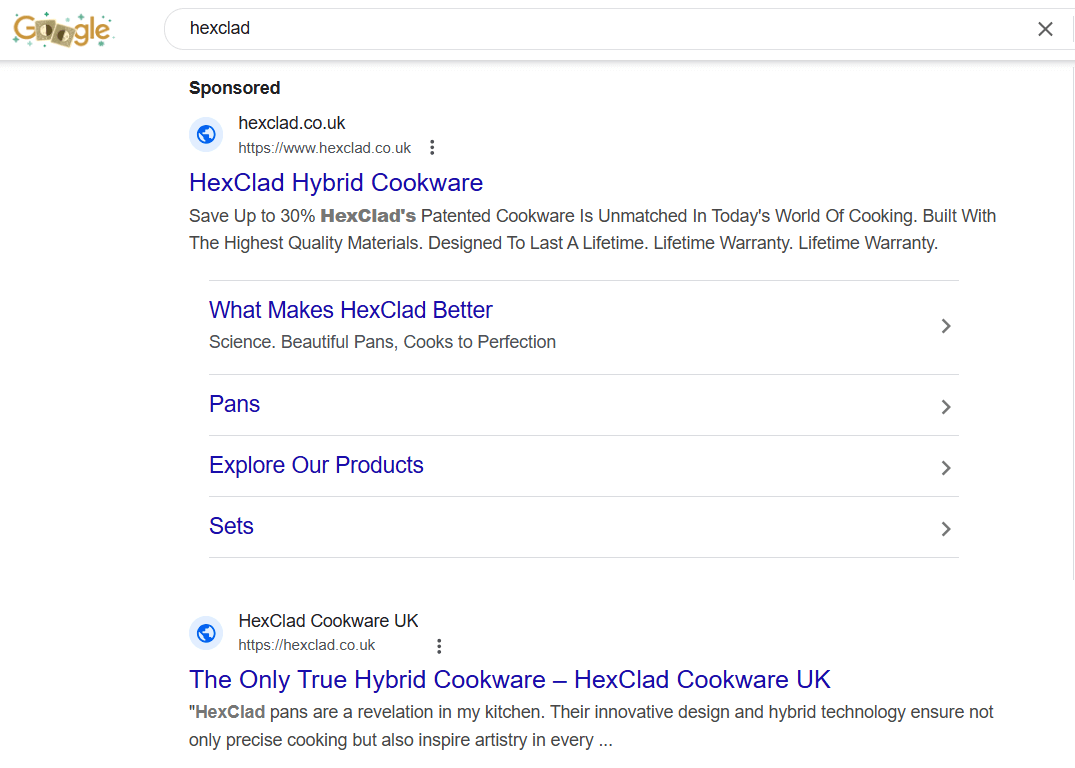
You control what people see when they search for you—and that’s a powerful thing.
3. Boost CTR and Conversions
Branded keywords usually have a high click-through rate and low cost per click. Why? Because people searching for your brand are already warm leads.
If you combine a strong ad with a great landing page, you’re likely to see a healthy bump in conversions. Plus, those high CTRs can improve your Quality Score, which could make all your ads cheaper in the long run.
But Isn’t This a Waste of Budget?
Not always. But there are a few caveats to keep in mind.
1. Cannibalising Organic Traffic
If you already rank first organically, some users might click on your ad instead of your free listing. Essentially, you’re paying for traffic you might have gotten anyway. Ouch. Unfortunately the cannibalising issue isn’t as straightforward as people would like you to believe. Now undoubtedly there will be a boost to organic traffic, but it is unlikely to pick up the entirety of the paid traffic for a variety of reasons such as competitor bidding.
We were able to run a test, where we paused a client’s brand ads over a full 3 month period and we have the data. As you will see while organic traffic did jump 27% (great) from the previous period, overall brand traffic was down 33%. Now obviously this won’t be the case for every brand but it is certainly something to think about, that pausing brand traffic Organic will just pick up 100% of the traffic.
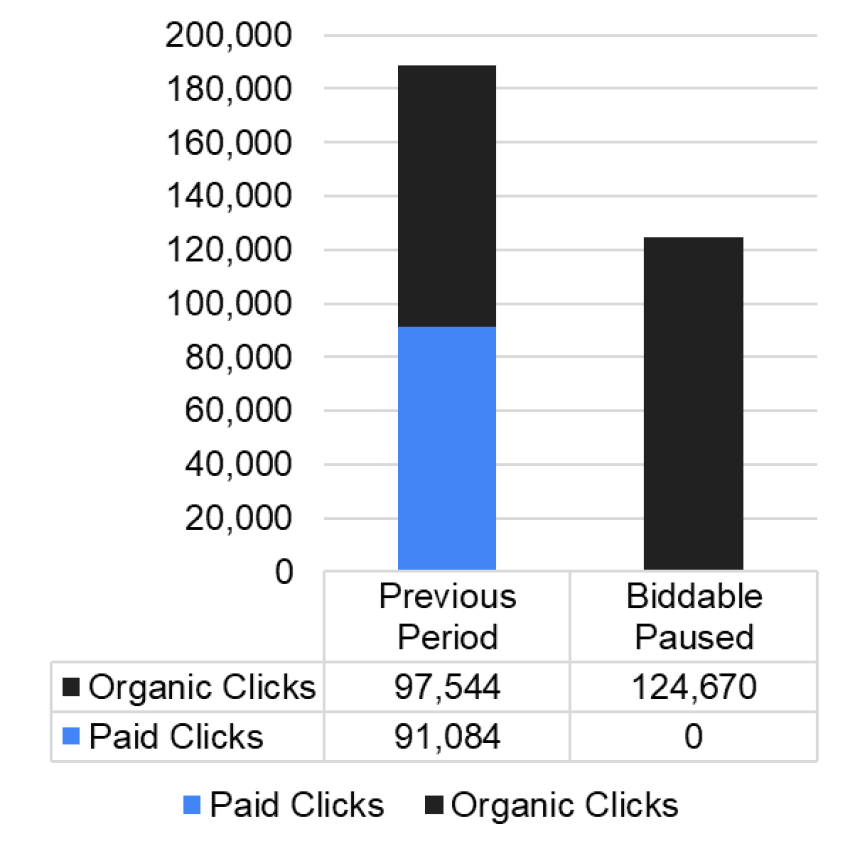
2. Limited Budgets
If you’re operating on a shoestring, branded campaigns might not be the best use of funds. Your budget could work harder targeting non-branded terms to bring in new customers, rather than preaching to the converted.
3. ‘Pure’ Brand v Brand + Product
Not all branded searches are created equal. There’s a big difference between someone simply searching for your brand name (pure brand) and someone searching for your brand + a specific product or service.
Pure Brand is just the brand name e.g. adidas. If you already have a strong organic presence and minimal competition, bidding on pure brand terms might be unnecessary. However if other brands are trying to steal your traffic, it might be worth some budget to put bidders off.
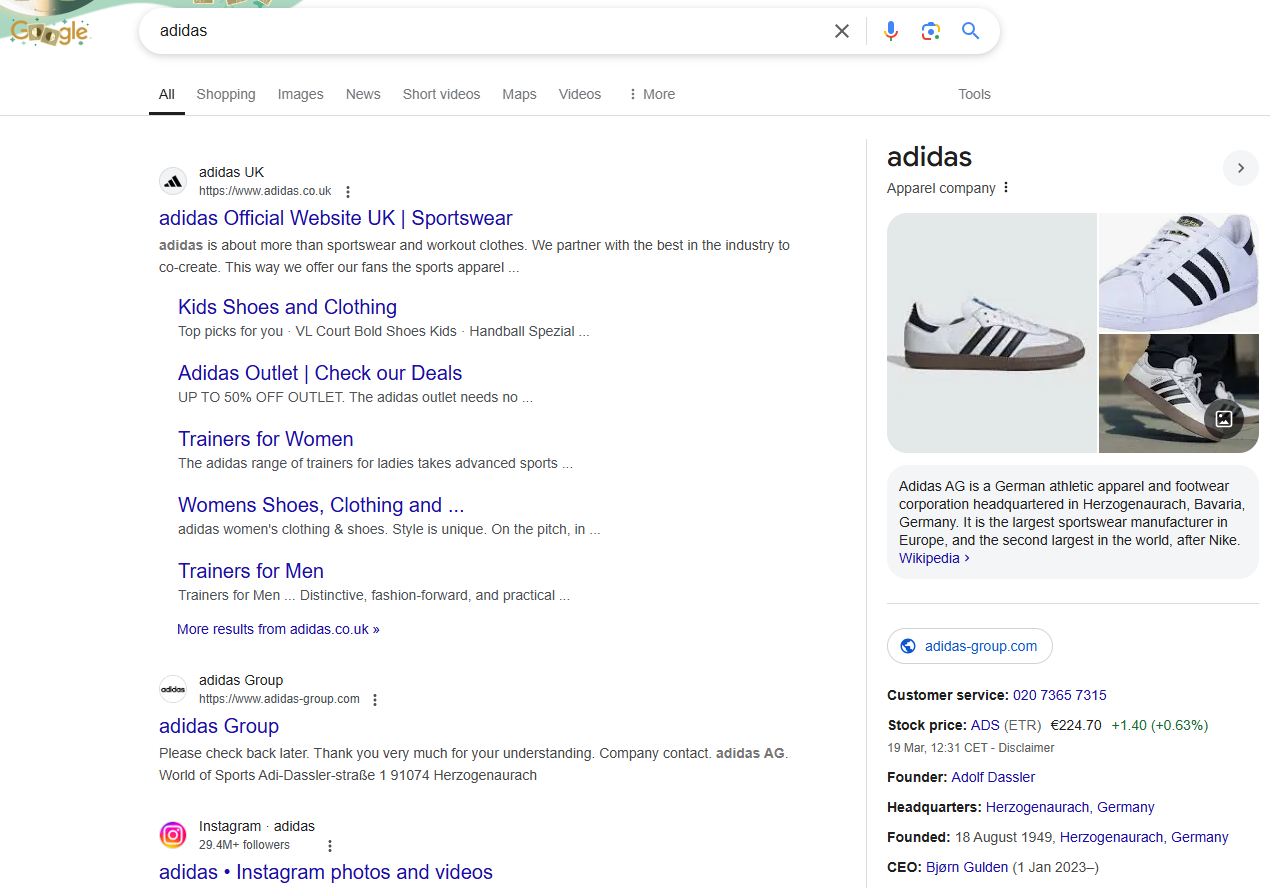
Brand + product/location searches now this is where clear intent is shown by a user e.g. adidas running shoes they are showing a very clear intent towards a certain product.
The issue with these higher value searches is competition tends be higher, as competition tries to jump on that intent.
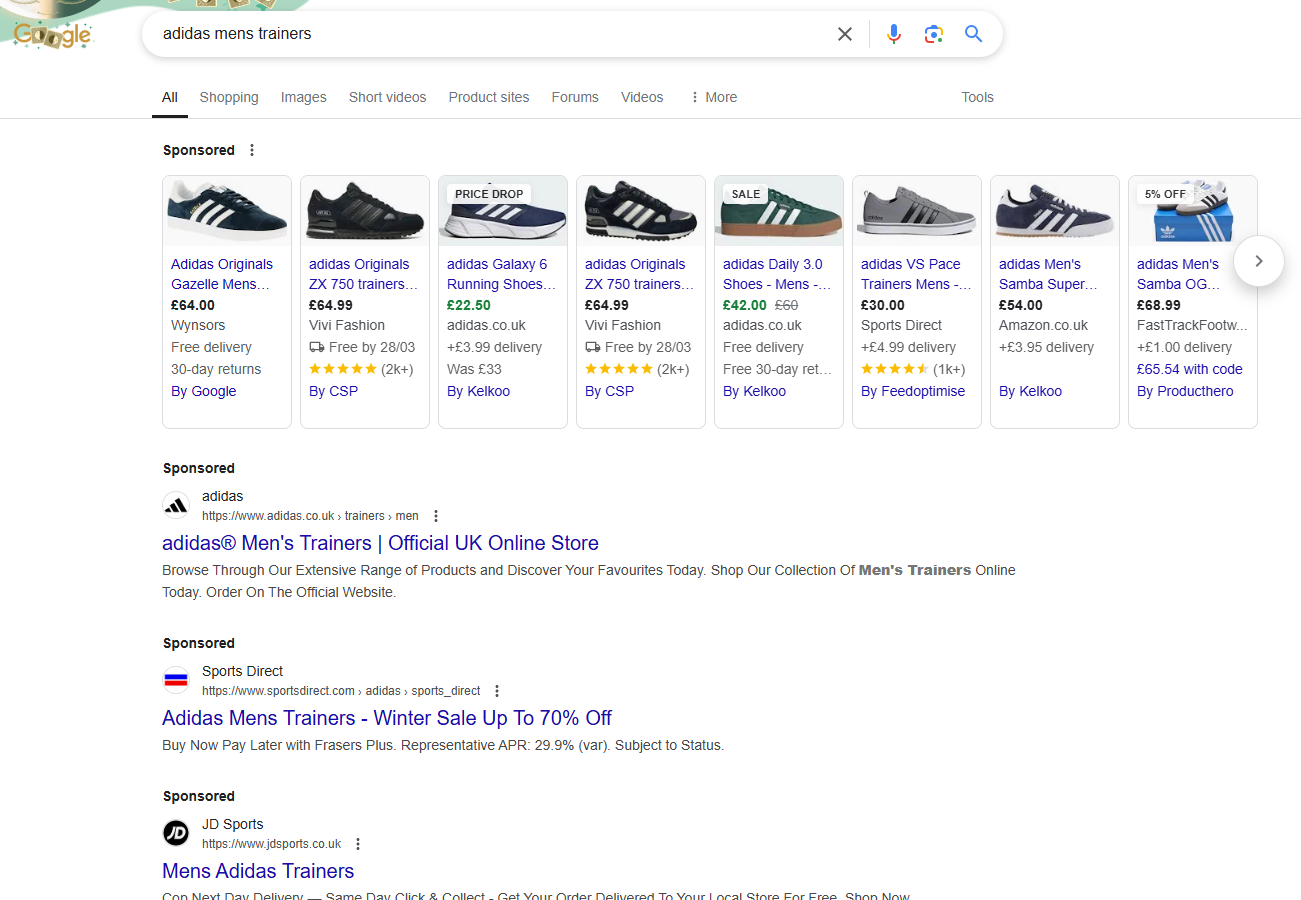
If budget is tight, prioritise brand + product campaigns over pure brand ones. They typically yield a better ROI by targeting users with stronger purchase intent.
4. Low Competition? No Problem.
If competitors aren’t bidding on your brand, and your organic listing dominates the results, you might not need to bother with branded ads. Save that budget for something splashier, like some avocado on toast 🙂
So, Should You Do It?
Here’s the TL;DR:
- Yes, if competitors are bidding on your brand, or you want more control over your messaging.
- Maybe, if you’re looking to boost CTRs and conversions on low-cost terms.
- No, if you’ve got a rock-solid organic presence, no competition, and a tight budget.
The best way to find out? Test it. Run a branded campaign for a few weeks and compare your overall traffic, conversions, and CPA. Keep a close eye on how much traffic is coming from organic vs paid. If you’re just moving people from one channel to another without adding value, it might be time to pull the plug.
Final Thoughts
Bidding on your own brand isn’t about vanity—it’s about strategy. In the right circumstances, it can protect your brand, improve your conversions, and give you a leg up against the competition.
But like all good PPC strategies, it needs to be backed by data. Don’t just throw money at branded campaigns and hope for the best—track your results, refine your approach, and make sure every click counts.
And if you’re still not sure, give us a shout. We’re always happy to help you figure out whether branded campaigns are a hit or a miss for your business.

Leave a Reply